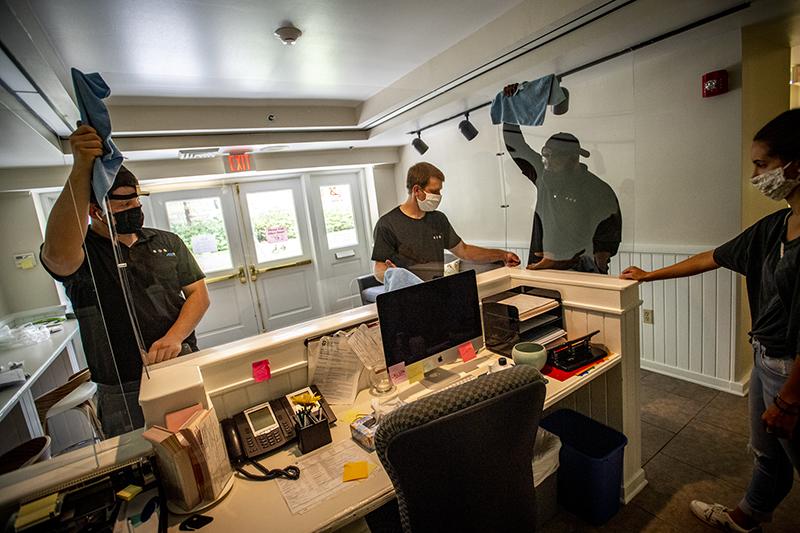Tulane University leaders detail plans on returning to campus in fall
On Monday Tulane President Michael Fitts, Senior Vice President and Provost Robin Forman, and Senior Vice President and Chief Operating Officer Patrick Norton announced the university’s plans for returning to on-campus learning, living and working in August.
A university-wide message enumerated steps the university has taken to protect the health of the Tulane community, while maintaining and enhancing the quality of Tulane’s educational experience. The message emphasized that Tulane followed guidelines set by federal, state and local governments as well as the CDC and WHO in drafting its plan to return and in establishing on-campus protocols and guidelines.
“Returning to campus means that we will be able to connect with old friends again and make new ones. We will be able to collaborate, explore and discover once more, in person. We will have the chance to teach, learn, work, play and grow together in the familiar spaces we know so well. Most importantly, we have taken, and are taking, a multitude of measures to promote the safety of our campus community and to mitigate risks associated with COVID-19. We know of no other school implementing all of the measures Tulane is to achieve this goal,” the message stated.
Tulane’s safety precautions will begin even before students, faculty and staff step foot on campus. Prior to returning to campus, students, faculty and staff will be required to take part in Tulane’s free COVID-19 testing program, which will be run by the School of Medicine, a leader in developing and improving the fastest, most accurate COVID-19 tests. Retesting will be conducted throughout the semester. All students who plan to live on campus will be tested at an Arrival Center Tulane established at the Hyatt Regency in downtown New Orleans. Students must have a negative test result before being allowed to move into their campus residence.
Students, faculty and staff will be required to wear face coverings in common areas, including classrooms, and to follow other precautions such as social distancing and frequent handwashing, as well as daily symptom monitoring. Hand sanitizers will be plentiful throughout all campus buildings and the university will provide two cloth face coverings for each faculty, staff and student.
Over the summer, every campus building was inspected to determine its maximum occupancy for safe social distancing, and all courses have been scheduled in classrooms that allow for required social distancing. Tulane built 13 temporary classrooms, five teaching facilities for performance classes such as dance, and a Dining Pavilion in order to accommodate socially distant learning and dining experiences. State-of-the-art technology will allow all classes to be taught both remotely and in person.
All campuses also underwent cleaning and disinfection by professional cleaners. In consultation with certified industrial hygienists and epidemiologists, Tulane has developed detailed protocols for continued cleaning and disinfection in accordance with CDC and OSHA guidance.
A committee made up of faculty, staff and students is also exploring opportunities and programs to enhance the student experience outside the classroom. The university hopes to stage socially distanced gatherings that make use of Tulane’s spacious grounds, including outdoor movies, Green Wave athletics watch parties and networking events.
In addition, the university will work with any student, faculty or staff member who cites health factors or other reasons that prevent their safe return to campus. To paint a fuller picture of Tulane’s return to campus life, the university has posted details of the Return to Campus plan online and will host a series of five webinars, for students, parents, faculty and staff between now and its August reopening. Click here to read the full message.

